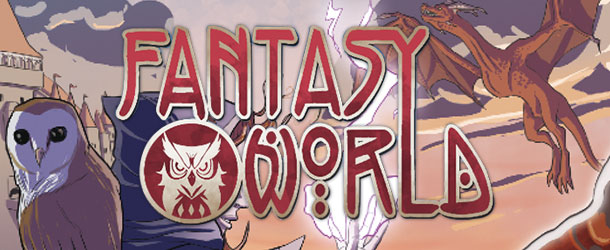
Delving into the Digital Realms: The Enduring Appeal of Fantasy Adventure Games
For decades, video games have offered an escape from the mundane, a portal to worlds where the impossible becomes reality. And within the vast landscape of gaming genres, fantasy adventure games stand as beacons, beckoning players to embark on epic quests, wield powerful magic, and confront terrifying beasts in sprawling, meticulously crafted worlds. These games aren’t merely entertainment; they are interactive narratives, offering a unique blend of player agency, compelling storytelling, and breathtaking world-building that has captivated generations.
The appeal of fantasy adventure games lies in their ability to tap into our primal fascination with mythology, folklore, and the eternal battle between good and evil. They offer us the chance to become the hero, the chosen one destined to save the world from encroaching darkness. They allow us to explore ancient ruins, unearth forgotten secrets, and forge alliances with diverse characters, each with their own motivations and backstories. The sense of discovery, the thrill of overcoming challenges, and the satisfaction of shaping the fate of a virtual world are all potent ingredients in the enduring recipe for fantasy adventure game success.
The Pillars of a Fantasy Adventure Game:
Before delving into specific examples, it’s crucial to understand the key elements that define a successful fantasy adventure game:
-
Compelling Narrative: At the heart of any great fantasy adventure lies a captivating story. This often involves a grand quest, a looming threat, and a protagonist who must rise to the occasion. The narrative must be engaging, filled with twists and turns, and populated with memorable characters that players can connect with.
-
Immersive World-Building: A believable and captivating world is paramount. This includes detailed lore, rich history, diverse cultures, and a sense of place that makes the player feel truly immersed in the environment. The world should feel alive, with its own internal logic and consequences for player actions.
-
Meaningful Choices: Player agency is crucial. The decisions players make should have a tangible impact on the story and the world around them. Branching narratives, moral dilemmas, and the ability to shape the protagonist’s personality are all key components of player agency.
-
Engaging Gameplay: The gameplay mechanics must be enjoyable and intuitive. This can range from strategic combat systems to intricate puzzle solving to exploration-driven gameplay. The game should constantly challenge the player and reward them for their efforts.
-
Progression and Customization: Players should feel a sense of progression as they play, whether it’s through leveling up their character, acquiring new skills, or unlocking powerful equipment. Customization options allow players to personalize their experience and create a character that reflects their own playstyle.
A Legacy of Legends: Examining Iconic Titles:
The history of fantasy adventure games is rich with iconic titles that have shaped the genre and influenced countless games that followed. Here are just a few examples:
-
The Legend of Zelda (Series): From the pixelated adventures of the NES era to the sprawling open-world exploration of Breath of the Wild, the Zelda franchise has consistently delivered exceptional fantasy adventure experiences. The series is renowned for its intricate dungeons, challenging puzzles, and the iconic character of Link, a silent hero tasked with saving Princess Zelda and Hyrule from the forces of darkness. The franchise’s emphasis on exploration, item collection, and puzzle solving has become a staple of the genre.
-
The Elder Scrolls (Series): The Elder Scrolls franchise, particularly Morrowind, Oblivion, and Skyrim, are lauded for their massive open worlds, unparalleled player freedom, and rich lore. These games allow players to create their own character, choose their own path, and explore a vast and detailed world filled with quests, dungeons, and secrets. The franchise’s emphasis on role-playing, character customization, and emergent gameplay has made it a favorite among fans of the genre.
-
The Witcher (Series): Based on the popular book series by Andrzej Sapkowski, The Witcher games, particularly The Witcher 3: Wild Hunt, offer a mature and morally complex fantasy experience. Players take on the role of Geralt of Rivia, a monster hunter known as a Witcher, who navigates a world filled with political intrigue, dangerous creatures, and difficult choices. The series is renowned for its compelling narrative, well-developed characters, and its emphasis on player agency and consequences.
-
Dragon Age (Series): BioWare’s Dragon Age series offers a compelling blend of high fantasy and political intrigue. The games feature a rich and detailed world, a cast of memorable companions, and a focus on player choice and its consequences. The series’ emphasis on party-based combat, character development, and branching narratives has made it a popular choice among fans of RPGs.
-
Dark Souls (Series): FromSoftware’s Dark Souls series, while challenging, has carved a unique niche in the fantasy adventure genre. Known for its punishing difficulty, intricate world design, and cryptic lore, Dark Souls rewards patience, perseverance, and a willingness to learn from mistakes. The series’ emphasis on exploration, discovery, and a sense of accomplishment has earned it a dedicated following.
The Evolution of Fantasy Adventure Games:
The fantasy adventure genre has evolved significantly over the years, adapting to new technologies and evolving player expectations. Early games were often limited by technological constraints, relying on simple graphics and text-based interfaces. However, as technology advanced, the genre blossomed, with games becoming more visually stunning, narratively complex, and immersive.
The rise of 3D graphics and open-world environments revolutionized the genre, allowing players to explore vast and detailed worlds with unprecedented freedom. The advent of online multiplayer also opened up new possibilities, allowing players to embark on adventures together and compete against each other in epic battles.
The Future of Fantasy Adventure Games:
The future of fantasy adventure games looks bright. Developers are constantly pushing the boundaries of what’s possible, exploring new technologies and innovative gameplay mechanics. Virtual reality (VR) and augmented reality (AR) offer the potential to create even more immersive and engaging experiences, blurring the lines between the virtual and the real.
We can also expect to see more games that emphasize player agency and emergent gameplay, allowing players to shape the world around them in meaningful ways. The rise of streaming services and cloud gaming could also democratize access to these games, making them available to a wider audience.
Conclusion:
Fantasy adventure games offer a unique and compelling form of escapism, transporting players to worlds of magic, wonder, and adventure. They allow us to become heroes, explore ancient ruins, and forge our own destinies. With their compelling narratives, immersive world-building, and engaging gameplay, these games have captivated generations of players and continue to evolve and innovate. As technology advances and player expectations evolve, the future of fantasy adventure games looks brighter than ever. So, grab your sword, gather your party, and prepare to embark on an unforgettable journey into the digital realms of fantasy. The adventure awaits.

